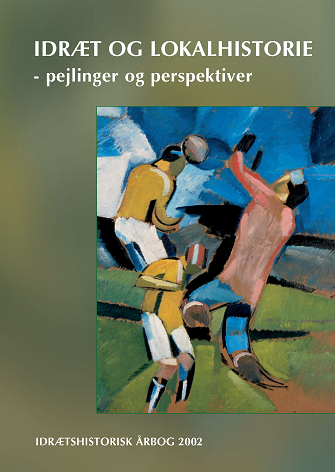Sportskammerater - et tema i forholdet mellem lokale idrætsforeninger og kommunale myndigheder
DOI:
https://doi.org/10.7146/ffi.v18i1.31728Resumé
Idrætspolitik og idræt som socialt samlingspunkt.
Sporting comrades – a theme in the relationship between local sports associations and the county authorities
Up until the Leisure Bill of 1968, relations between local sporting associations and local authorities were characterised by a gradual onward progress, in which local sports associations with greater or lesser degrees of success won the local power struggle to give children and young people a good leisure activity. Those rights and agreements with the county on economic support which most sports associations today almost take for granted were achieved because the self-knowledge possessed by sports associations was shared in a whole series of areas by surrounding society and to a large degree also by politicians. Central to this self-knowledge was the perception that comradeship in sports associations symbolised a social fellowship which was held in place by emotional values. The question is whether comradeship is not in many ways at the heart of the way in which sports associations have locally extended and underpinned their influence in relation to local politicians and business. To take part in the comradely conventions of sport was then tantamount to being member of a lodge with all the political and economic network that it involved.
Downloads
Publiceret
Citation/Eksport
Nummer
Sektion
Licens
Forfattere, der publicerer deres værker via dette tidsskrift, accepterer følgende vilkår:
- Forfattere bevarer deres ophavsret og giver tidsskriftet ret til første publicering, samtidigt med at værket er omfattet af en Creative Commons Attribution-licens, der giver andre ret til at dele værket med en anerkendelse af værkets forfatter og første publicering i nærværende tidsskrift.
- Forfattere kan indgå flere separate kontraktlige aftaler om ikke-eksklusiv distribution af tidsskriftets publicerede version af værket (f.eks. sende det til et institutionslager eller udgive det i en bog), med en anerkendelse af værkets første publicering i nærværende tidsskrift.
- Forfattere har ret til og opfordres til at publicere deres værker online (f.eks. i institutionslagre eller på deres websted) forud for og under manuskriptprocessen, da dette kan føre til produktive udvekslinger, samt tidligere og større citater fra publicerede værker (se The Effect of Open Access).





